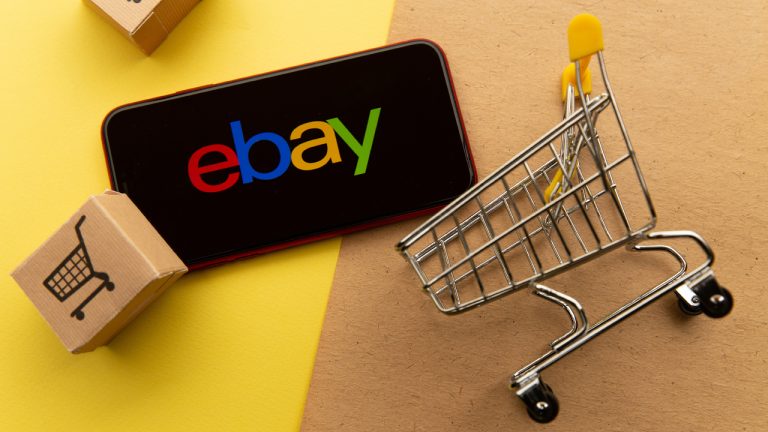
MoonPay is reportedly looking to acquire Helio Pay for around $150 million, adding to the crypto firm’s merchant service offerings.
Crypto payments firm MoonPay is reportedly considering acquiring crypto e-commerce platform Helio Pay for around $150 million.
MoonPay “is in talks” with Helio Pay for the estimated $150 million deal in what would be the company’s largest acquisition to date, FOX reporter Eleanor Terrett said in a Dec. 23 X post.
MoonPay markets itself as the “PayPal for crypto,” offering up a suite of crypto payments infrastructure.
 The largest stablecoin issuer, Tether, has announced a collaboration with Uquid, a Web3 e-commerce platform. This partnership enables residents of the Philippines to pay their Social Security System (SSS) contributions using the stablecoin issued on The Open Network (TON). Additionally, Uquid has released a detailed guide for citizens on how to use USDT-TON to pay […]
The largest stablecoin issuer, Tether, has announced a collaboration with Uquid, a Web3 e-commerce platform. This partnership enables residents of the Philippines to pay their Social Security System (SSS) contributions using the stablecoin issued on The Open Network (TON). Additionally, Uquid has released a detailed guide for citizens on how to use USDT-TON to pay […] The smart contracts platform Avalanche recently said it is collaborating with the Chinese payments giant Alipay to launch a Web3-enabled voucher program. The second phase will see the proof of concept being expanded to more than 100 million users from Southeast Asian countries. Web3-Enabled Vouchers Avalanche, a smart contracts platform, has said it is working […]
The smart contracts platform Avalanche recently said it is collaborating with the Chinese payments giant Alipay to launch a Web3-enabled voucher program. The second phase will see the proof of concept being expanded to more than 100 million users from Southeast Asian countries. Web3-Enabled Vouchers Avalanche, a smart contracts platform, has said it is working […] Recently, Ebay, the e-commerce behemoth, implemented significant changes within its Web3 division. These changes resulted in a 30% reduction in the division’s workforce and the departure of a pivotal employee. Among those affected by this restructuring is David Moore, the founder of Knownorigin, a marketplace for non-fungible tokens (NFTs), whose post is redundant. Ebay’s Dedication […]
Recently, Ebay, the e-commerce behemoth, implemented significant changes within its Web3 division. These changes resulted in a 30% reduction in the division’s workforce and the departure of a pivotal employee. Among those affected by this restructuring is David Moore, the founder of Knownorigin, a marketplace for non-fungible tokens (NFTs), whose post is redundant. Ebay’s Dedication […]

Flipkart shared plans to use Polygon CDK as the base to build an Ethereum-based ZK layer-2 network, which can help the e-commerce platform scale future growth and streamline its service.
India’s homegrown e-commerce giant Flipkart will use Polygon’s chain development kit (CDK) to launch a Web3 loyalty program.
On Dec. 2, Polygon and Flipkart announced a strategic partnership to effectively position the e-commerce platform into Web3 and the metaverse. This included initiatives such as Flipverse for nonfungible tokens (NFTs), eDAO for metaverse and the FireDrops NFT marketplace.
Building on this partnership, Polygon co-founder Sandeep Nailwal announced on Dec. 7 that Flipkart will use the Polygon CDK to scale its FireDrops Web3 loyalty program.

The service industry needs blockchain for enhanced security, transparency and efficiency in managing transactions, contracts and customer data.
Blockchain technology has the potential to completely transform the services sector by improving efficiency, security and transparency.
Blockchain technology reduces the risk of fraud and errors in industries, including supply chain management, healthcare, and media and entertainment, by ensuring tamper-proof record-keeping through decentralized ledgers.
Blockchain-based smart contracts, or self-executing contracts, automate work and lessen the need for intermediaries to manage legal and real estate services operations. Additionally, blockchain enables safe and quick transactions in the hospitality industry, facilitating easy international payments and loyalty program administration.
Moreover, blockchain improves data security in customer care, protecting the privacy and confidence of customers. Additionally, it helps with supply chain traceability, which is essential for confirming the legitimacy of goods in sectors like food and medicine. Blockchain lowers costs by doing away with the need for intermediaries, giving customers access to more economical services.
Blockchain technology improves trust, lowers expenses, and opens up new and creative alternatives for both customers and retailers.
One way it achieves this is by enabling secure and decentralized payment systems. For example, peer-to-peer transactions are made possible by cryptocurrencies, such as Bitcoin (BTC) and Ether (ETH), which use blockchain technology to eliminate the need for intermediaries like banks. This improves the consumer experience by lowering transaction fees and expediting the payment process.
Additionally, blockchain enhances retail supply chain management. Retailers can track a product’s route from manufacturer to customer with clear, tamper-proof ledgers. By guaranteeing product authenticity, this transparency lowers the possibility of fake items entering the market. For instance, IBM’s Food Trust Network uses blockchain technology to track the provenance of food products, giving consumers and retailers confidence in the legitimacy and caliber of goods shown on store shelves.
Retailers can also utilize nonfungible tokens (NFTs) that represent unique retail items, like limited edition products or digital assets, ensuring authenticity and provenance. This uniqueness appeals to collectors and enthusiasts, creating new revenue streams for retailers.
Furthermore, loyalty programs built on blockchain technology might encourage client involvement. To promote customer loyalty and maintain the security and integrity of reward programs, retailers can issue tokens on a blockchain that consumers can accumulate and redeem at different stores.
Blockchain technology plays a pivotal role in health records management by ensuring secure, interoperable and tamper-proof storage of sensitive patient information.
Patient records in the healthcare industry are frequently dispersed among several systems and providers, which compromises data integrity and causes inefficiencies. By implementing a decentralized, unchangeable ledger where patient records are safely kept and unifiedly accessible, blockchain solves these issues.
For instance, people can be in charge of their medical records via MedRec, a blockchain-based platform that gives healthcare providers access to them when needed. Additionally, Estonia’s e-Health Authority implemented blockchain technology to safeguard medical records, guaranteeing that patient information is shielded from alteration and illegal access. This facilitates the exchange of medical information among experts, improving patient care and diagnosis accuracy while also enhancing data security and privacy.
Furthermore, patient records can be uniquely tokenized using NFTs, improving their integrity and thwarting tampering. Guaranteeing the confidentiality and legitimacy of medical data helps build confidence between patients and healthcare professionals.
Blockchain technology enhances efficiency and reduces costs in the hospitality industry through various applications that streamline operations and improve customer experiences.
Cryptocurrencies built on blockchain technology allow for quick and safe cross-border transactions; they eliminate the need for currency conversions and the transaction costs connected with using traditional banking systems. This simplified payment process lowers expenses for both customers and businesses while accelerating transaction speeds.
Blockchain also improves hotel reservations by doing away with intermediaries. By using blockchain-based platforms like LockTrip, hotels are able to list their rooms directly to consumers, negating the need for intermediary booking websites. Hotels can maximize earnings while providing clients with lower pricing by eliminating intermediaries. In addition to lowering commission expenses, this direct communication between hotels and visitors also promotes a more open and competitive pricing environment.
Furthermore, blockchain technology can be advantageous to hotel loyalty programs. Through blockchain technology, hotels may create digital tokens that can be tracked and securely establish reward programs. The simplicity of managing these tokens lowers the administrative burden and guarantees the integrity of loyalty programs.
By providing a secure and transparent framework, blockchain technology streamlines legal and real estate transactions, instilling trust among parties involved and paving the way for a more efficient and reliable future in these sectors.
Blockchain prevents fraud and tampering in the legal realm by using cryptographic hashes to guarantee the integrity of contracts and legal documents. Encoded in the blockchain, smart contracts are self-executing agreements that automate the performance of contractual obligations, eliminating the need for intermediaries and minimizing disputes.
Blockchain makes real estate transactions more transparent by keeping track of ownership information, past transactions and legal papers in a decentralized ledger. This unchangeable record guarantees the validity of property titles, lowering the possibility of real estate fraud. Furthermore, blockchain-enabled platforms streamline the process of buying real estate by reducing paperwork and administrative expenses and enabling speedier and securer transactions.
Through a process known as tokenization, real estate assets can be tokenized to allow for the division of properties into smaller, exchangeable parts. This allows tokens to be bought, sold and traded on blockchain-based platforms by investors.
This approach provides liquidity to traditionally illiquid assets, allowing for more efficient and diverse investment opportunities in the real estate market. Additionally, by enabling developers to sell tokens that reflect future revenue or ownership holdings in the project, it streamlines the fundraising process for real estate development projects.
By guaranteeing transparency, equitable pay and content security, blockchain technology transforms the media and entertainment industries.
Direct transactions between customers and artists are made possible by smart contracts, which remove the need for intermediaries and guarantee that artists are paid fairly and promptly.
Furthermore, by giving content creators the opportunity to directly monetize their work, decentralized platforms promote a more just economy. The immutability offered by blockchain technology improves copyright protection by discouraging piracy and guaranteeing that creators maintain ownership of their creations.
Additionally, it makes royalty distribution public, removing disparities and guaranteeing just compensation for all parties involved. Tokenization democratizes investment opportunities by enabling partial ownership of media assets.
Digital rights management based on blockchain also guarantees safe and traceable content distribution. This technology empowers the industry to create a more effective, equitable and safe environment by empowering artists, creators and customers equally.
Integrating blockchain into existing service industry infrastructure poses challenges due to diverse platforms, data privacy concerns and interoperability issues.
The difficulty of integrating blockchain with existing infrastructure and processes is a significant obstacle. Because service providers frequently use a variety of platforms and technologies, achieving seamless integration can be difficult. It might be difficult to protect data security and privacy while still adhering to regulations.
Blockchain’s transparency conflicts with the requirement to protect sensitive customer information, necessitating careful design and implementation of privacy measures. Another major challenge is establishing communication and data exchange across various blockchain networks and traditional systems. To facilitate seamless interoperability, service providers need to spend time developing standardized protocols, which can be expensive and time-consuming.
Moreover, there are scalability concerns. Blockchain networks, especially public ones, may face limitations in handling a high volume of transactions efficiently. Delays and higher expenses may result from this, especially in service industries where several quick transactions are necessary.
Finally, it’s critical to inform staff members and stakeholders about blockchain technology and its possible uses. Careful planning, teamwork and continual adaptability to the fast-changing blockchain landscape are required to overcome these obstacles.

The industry should build trust with retail consumers as Canada shifts to a digital economy, says Coinbase country director for Canada, Lucas Matheson.
Canadians are starting to look at digital assets as more than just speculative investments, seeing them instead as legitimate assets for everyday transactions, according to Coinbase’s country director for Canada.
Speaking to Cointelegraph in Toronto on Aug. 16, Coinbase’s Canada director Lucas Matheson said he believes that more utility and use cases in daily life will soon be digital asset-backed, something that “everyone in our industry is excited for.”
“In Canada, we're ready to move beyond the confines of thinking about digital assets as a speculative retail investment. This is a movement. It's a belief in the democratization of finance.”
Matheson believes that as crypto and non-fungible tokens (NFTs) gain more prevalence it’d be helpful for Canadians to understand the concept of decentralization and the reasons why — and how — digital assets could soon be a normal part of everyone's day-to-day life.
In July, a Bank of Canada study reported Bitcoin (BTC) and crypto ownership declined slightly in 2022 following price lows, company collapses and regulatory hurdles.
However, an October 2022 Ontario Securities Commission report claimed over 30% of Canadians plan to purchase crypto by 2024.
He added one of the most important things for the industry to do is build trust and Coinbase is focusing on helping Canadians understand why a shift to a digital economy is happening.
“We're all working to build trust with government, with members of Parliament, to help them understand how to build a strong economic plan for Canada that includes digital assets.”
E-commerce was one use case Matheson believes will be significantly changed by NFTs, specifically so-called “phygital” items — when a digital asset is included when buying a physical good.
Sportswear company Puma and luxury brand Dior recently released shoes that either link with an NFT authenticating the product or include an NFT twin.

Regulatory clarity was also an important factor Matheson highlighted that would help more Canadian institutions participate in the digital economy.
Related: Strict Canadian crypto exchange rules allowed Kraken clarity to invest there, says exec
He called Canada’s crypto approach “regulation by engagement” compared to the regulation by enforcement approach of United States regulators.
“Canada is making progress in how the government thinks about regulating our industry. They're committed to regulating crypto,” he said.
Great to see our government Committee on Industry and Technology making such strong recommendations for crypto & blockchain! Canada https://t.co/oLflfkHETa
— Lucas Matheson (@lucmatheson) June 28, 2023
David Furlong, the operating chief of the financial services firm People's Group agreed, saying Canada's regulators are very apolitical, seeking to understand and respond to issues themselves and tend "not to react to soundbites."
A July report from the Canadian House of Commons tech committee found the blockchain industry has significant long-term economic and job creation opportunities for the country.
It gave 15 recommendations, including recognizing blockchain as an emerging industry, providing more regulatory clarity and forming a national strategy alongside the industry.
Additional reporting by Sam Bourgi.
Magazine: How smart people invest in dumb memecoins — 3-point plan for success

AI is transforming e-commerce customer service through chatbots, personalized recommendations, voice assistants, fraud detection and image recognition.
Artificial intelligence (AI) has revolutionized the e-commerce industry in recent years. One of the most significant ways in which AI is impacting e-commerce is by transforming customer service. AI-powered customer service technologies are becoming more common, and they are helping to improve the customer experience in numerous ways.
This article will discuss how AI improves customer service in e-commerce, with examples of companies using these technologies to their advantage.
AI-driven chatbots are assisting online retailers in offering prompt and effective customer support. Without human assistance, chatbots may provide 24/7 customer service. They can assist clients with information about the products, order tracking, returns and refunds, and other services. For instance, H&M uses a chatbot to assist shoppers in finding products and placing orders on its website.

However, chatbots may not always understand complex customer queries, leading to frustration and dissatisfaction.
AI is capable of analyzing client data and making tailored product recommendations. E-commerce companies can provide customers with products more likely to be of interest by learning about their preferences and past purchases. For instance, using AI, Amazon suggests products based on a customer’s browsing and purchase history.
The 4 key components of the most successful Amazon product pages are:
— Talia Wolf (@TaliaGw) May 3, 2023
1. A personalized shopping experience
How? Get your Web Dev to use Amazon Personalize to deliver personalized recommendations to your customers
…
Personalized recommendations, however, may be perceived negatively by some customers as intrusive or creepy, which is one of the disadvantages of AI.
AI can help e-commerce businesses detect and prevent fraudulent activity before it happens. By analyzing patterns of fraudulent behavior, AI can identify potential fraudsters and flag suspicious transactions. For example, PayPal uses AI to detect fraudulent transactions and prevent unauthorized account access.
Related: 7 Potential use cases of chatbots in banking
However, these systems may not always accurately distinguish between legitimate and fraudulent, leading to false positives that can inconvenience and frustrate customers.
With the rise of voice assistants like Amazon’s Alexa and Google Home, e-commerce businesses can use AI to provide a more seamless customer experience. Customers can use their voices to order products, check order status and get answers to questions. For example, Walmart has integrated its shopping service with Google Home, allowing customers to add items to their cart and place orders using voice commands.
Still, voice assistants might not always understand consumer requests correctly, which could cause annoyance and mistakes during the ordering process.
E-commerce companies can enhance their product search and discovery with AI-powered image recognition. AI can make it easier for buyers to find what they want by examining product photos and recognizing characteristics like color, shape and texture. For instance, Wayfair uses image recognition technology to assist clients in locating furniture and home décor items that complement their tastes and aesthetics.
Related: 5 emerging trends in deep learning and artificial intelligence
However, one disadvantage is that image recognition may not always accurately identify products, especially if they are similar in appearance or if the lighting and background in the image are poor. This can lead to frustration and incorrect purchases for the customer.
As e-commerce continues to evolve, AI technology is playing an increasingly important role in the industry. AI is revolutionizing how online retailers conduct business, from personalizing the shopping experience to improving supply chain management. There are several areas where AI is anticipated to significantly affect e-commerce in the future.
Visual search is one such area that enables users to find things by merely submitting a photo. Retailers can use AI to analyze photos and determine product characteristics like color, style and material. Using this technology, a customer’s browsing history can be used to generate product recommendations.
Additionally, it is anticipated that e-commerce will place more emphasis on AI-powered fraud detection. AI can assist merchants in identifying and preventing fraudulent transactions by analyzing trends in client behavior. The risk of stockouts and overstocking can be decreased by using this technology to improve the accuracy of supply chain forecasts and inventory management.
Finally, thanks to its capability to analyze consumer behavior and make real-time price adjustments, AI can assist businesses in optimizing their pricing plans. Additionally, this technology can be used to design customized sales incentives and promotions for specific clients, fostering client loyalty and boosting revenue.

AI impacts everyday life: personal assistants, social media, healthcare, autonomous vehicles, smart homes and more!
Artificial intelligence (AI) is becoming increasingly important in our daily lives. AI can automate routine and time-consuming tasks, allowing us to focus on more important activities. In addition, AI algorithms can analyze vast amounts of data to personalize products, services and experiences. Moreover, AI is driving innovation in various industries, such as finance, retail and education.
Here are seven artificial intelligence examples in everyday life.
AI-powered personal assistants, such as Siri, Google Assistant and Amazon Alexa, are integrated into smartphones, smart speakers and other devices and can perform a wide range of tasks, from setting reminders and sending messages to playing music and controlling smart home devices.
Social media sites utilize AI to examine user preferences and behavior, suggest pertinent material, and customize the user experience. Moreover, bogus news, hate speech and other harmful content are found and eliminated thanks to AI systems.
For instance, Meta uses AI to detect and remove fake news and other harmful content. Instagram uses AI to recommend posts and stories based on user behavior. TikTok uses AI to personalize the user experience and recommend videos.
Businesses are increasingly using virtual assistants and chatbots powered by AI to offer 24/7 customer service. Natural language processing is used by these chatbots to comprehend consumer questions and deliver relevant responses.
For instance, many companies, such as H&M, use AI-powered chatbots to provide customer support. These chatbots can handle a wide range of queries, such as tracking orders and processing returns.
Related: 10 emerging technologies in computer science that will shape the future
Applications of artificial intelligence in healthcare include patient monitoring, medication research and medical imaging. Medical picture analysis, anomaly detection and diagnosis support are all capabilities of AI algorithms.
For instance, Merative (formally IBM Watson Health) uses AI to analyze medical images and assist doctors in making diagnoses. The app Ada uses AI to help users identify symptoms and connect with healthcare professionals.
From drug discovery to clinical decision support, AI is transforming the way we approach healthcare. Some of the top AI tools in the market include IBM Watson Health and Google DeepMind Health. #HealthcareAI #AIinMedicine #HealthTech
— Pratap Venkatesan (@twitprattu) March 22, 2023
Related: 9 promising blockchain use cases in healthcare industry
Customers are given product recommendations by e-commerce sites, such as Amazon, using AI algorithms based on their search queries, browsing histories and other information. Sales are boosted as a result, and customer satisfaction is enhanced.
AI is used in self-driving cars, trucks and buses to perceive their environment, map out routes and make judgments while driving. It is anticipated that this technology will lessen collisions, gridlock in the streets and pollutants.
For instance, Tesla uses AI to power its self-driving cars, which can navigate roads, highways and parking lots without human intervention.
Smart home devices such as thermostats, lighting systems and security systems use AI to learn user preferences and adjust settings accordingly. These devices can also be controlled remotely using smartphones or voice commands.
For instance, Philips Hue uses AI to adjust lighting based on user preferences and ambient light levels.
Philips hue makes me so happy. pic.twitter.com/MHqoNvx7AK
— BLAZEAYEEN ️ AC 2023 (@BLAZEAYEEN) March 19, 2023
NFT Creator: Creating ‘organic’ generative art from robotic algorithms: Emily Xie
 The online marketplace giant, Ebay, is seeking to fill several positions in the area of Web3 and non-fungible token (NFT) technology, according to several Linkedin job postings. Ebay is looking for a “creative crypto attorney” for the marketplace, Knownorigin, which it acquired in June 2022. Big Corporations Still Seek Workers to Manage Crypto and Blockchain […]
The online marketplace giant, Ebay, is seeking to fill several positions in the area of Web3 and non-fungible token (NFT) technology, according to several Linkedin job postings. Ebay is looking for a “creative crypto attorney” for the marketplace, Knownorigin, which it acquired in June 2022. Big Corporations Still Seek Workers to Manage Crypto and Blockchain […]